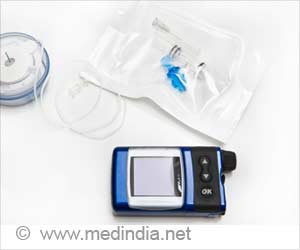Study links sleep duration to microvascular disease risk in newly diagnosed type 2 diabetes. Age amplifies risk from short sleep.

Both short and long sleep durations are associated with type 2 diabetes, independent from traditional lifestyle risk factors-The Maastricht Study
Go to source).
Link Between Sleep Duration and Microvascular Disease in Newly Diagnosed Type 2 Diabetes
Microvascular complications such as retinopathy and nephropathy are significant contributors to the health issues associated with type 2 diabetes (T2D). Increasing evidence suggests that variations in sleep duration may influence the risk of developing these diabetes-related complications. This study aimed to explore the relationship between sleep duration and the presence of microvascular disease in individuals newly diagnosed with T2D.‘Age increases microvascular disease risk from short sleep in new diabetes cases. #medindia #sleephealth’





For their analysis the authors used data from The Specialist Supervised Individualized Multifactorial Treatment of New Clinically Diagnosed Type 2 Diabetes in General Practice (IDA) study – a substudy from the Danish Centre for Strategic Research in Type 2 Diabetes (DD2) cohort.Sleep duration at night was measured using Axivity AX3 accelerometers, worn by participants for a period of 10 days. Sleep duration at night was classified into three categories: short (<7 h), optimal (7 to <9 h), and long (9 h or more). Microvascular disease (damage of small blood vessels) was defined as either urine albumin/creatinine ratio (UACR) ≥ 30 mg/g or presence of diabetic retinopathy (DR) assessed by either mydriatic retinal imaging or ophthalmoscopy.
Computer modelling was then applied using optimal sleep duration as the reference group adjusted for age, sex, BMI systolic blood pressure, smoking habits, glycated haemoglobin (HbA1c – a marker of blood sugar control), duration of diabetes, and antihypertensive treatment, and used to estimate odds ratios (ORs) between sleep duration groups.
In total, 396 participants had valid sleep duration measurements, UACR measurement and eye examination. The median age was 62 years with a mean diabetes duration of 3.5 years, and 175 were females (44%). The cohort predominantly consisted of overweight individuals, with a median BMI of 31 (in the obese range), and 68% (n=285) were on antihypertensive medication.
Distribution of sleep duration was 12% (n=49) with short sleep duration, 60% (n=238) with optimal sleep duration, and 28% (n=109) with long sleep duration. Prevalence of microvascular damage was 38%, 18%, and 31% in the short, optimal, and long sleep duration groups, respectively. Short sleep duration was significantly associated with a 2.6 times increased risk of microvascular disease compared with optimal sleep duration. Similarly, long sleep duration was independently associated with a 2.3 times increased risk of microvascular disease compared to optimal sleep duration.
Advertisement
Age-Dependent Impact of Sleep Duration
Furthermore, the association between short sleep duration and microvascular disease was accentuated by age. Interestingly, for participants aged under 62 years, short sleep duration only increased the risk of microvascular damage by 23% compared with optimal sleep duration; but for those participants aged 62 years and over, short sleep duration was associated with a 5.7 times increased risk of small blood vessel damage compared to optimal sleep duration. The effect of age on the relationship between long sleep duration and microvascular disease was not statistically significant.The authors conclude: “In recently diagnosed T2DM patients, both short and long sleep durations are associated with a higher prevalence of microvascular disease compared to optimal sleep duration at night. Age amplifies the association between short sleep duration and microvascular disease, suggesting increased vulnerability among older individuals.”
Advertisement
Reference:
- Both short and long sleep durations are associated with type 2 diabetes, independent from traditional lifestyle risk factors-The Maastricht Study - (https://www.sleephealthjournal.org/article/S2352-7218(23)00131-6/fulltext)
Source-Eurekalert















